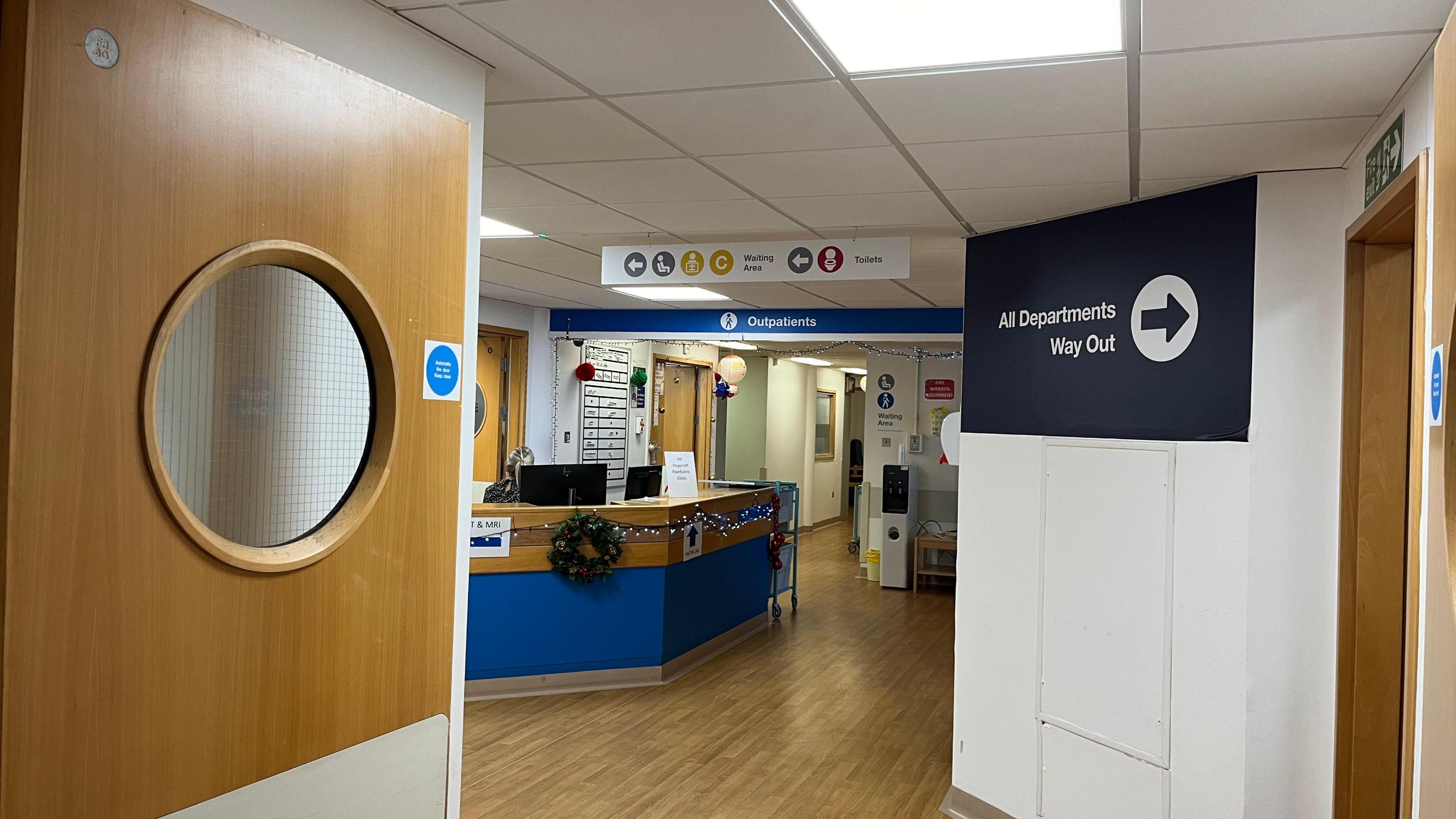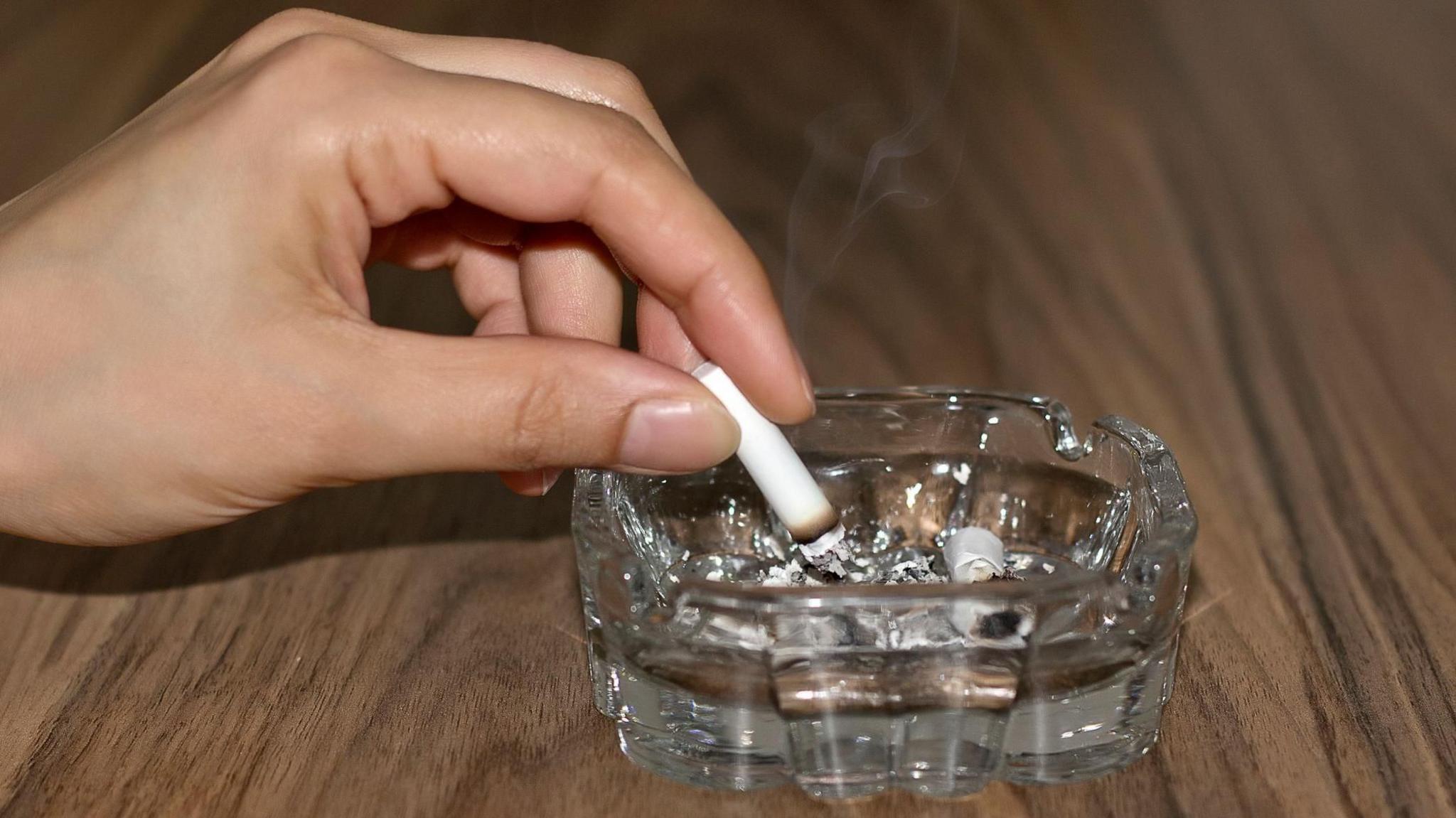Guernsey's healthcare system facing crisis - report

The report warns that without disease prevention the new hospital would not cope
- Published
Guernsey's healthcare system needs to focus on preventing ill health or it will face a crisis in the next 20 years, according to a health report.
Director of Public Health Dr Nicola Brink said the case for prevention "had never been stronger".
Dr Brink warned that, without a long-term vision for health policy, "the hospital we are building now will not cope".
It was expected that the number of people with chronic illnesses would rise, with cases of dementia likely to increase by 61% by 2043.

Cutting smoking rates is a key target outlined in the report
The report sets out six goals, which it said would "improve health outcomes":
Halve the smoking rate from the current 9.1% to achieve a "smoke-free bailiwick"
Reduce the number of people consuming more that 14 units of alcohol per week to 20%
Cut the number of people over the age of 16 who are classed as obese by one third
Help at least 4,000 people to be more active
Help more children be physically and mentally healthy with a reduction in obesity
Help 5,000 people reduce their risk of cardiovascular disease
Setting out the argument for investing in prevention, Dr Brink said, without doing so, tax revenue would go down, healthcare would need to be "rationed" and there would not be enough hospital beds by 2043 or sooner.
Dr Brink said: "We need to look further than the next year or two and take bold steps to shape the health and wellbeing of islanders in decades to come.
"Failing to do so will mean that we leave a larger burden of ill-health for future generations - this is neither fair, nor ethical."
'Real concern'
The results of a wellbeing survey have also been released, with the report showing how islanders feel about their general health and their habits.
It showed that the number of people who said they smoked tobacco had reduced to 9.1%, down from 13.1% in 2018, when the survey was last done.
High-risk drinking behaviours and the use of illegal drugs had also decreased compared to the previous five years.
However, more people said they vaped compared to 2018 - at 11%, up from 5.8%.
Jenny Cataroche, head of public health intelligence, said: "One of the stand-out findings is the prevalence of tobacco smoking which is the lowest level recorded since the survey series began — in 1988 when the first survey was carried out, some 30% of residents smoked.
"On the other hand, we have seen a marked increase in vaping in the five years since the last survey, reflecting national and international trends."
Ms Cataroche said the numbers on sun safe behaviours was a point of "real concern".
She said whilst the majority of respondents, some 93.5%, reported regularly using one or more method to protect themselves from the sun, more than 70% of those under 35, reported having one or more episode of sunburn in the 12 months.
She added this was coupled, especially for those aged 16–24, with "low awareness of the signs of skin cancer."
Follow BBC Guernsey on X, external and Facebook, external. Send your story ideas to channel.islands@bbc.co.uk, external.
Related topics
- Published9 August 2023

- Published15 October 2023
